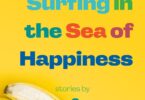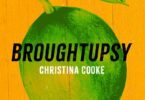In a writing workshop yesterday, my peers had a bad reaction to one writer’s use of the word “hooker.” This term is derogatory, they said. So it was jarring, hard to read. But sometimes a narrator or a character can say things that are derogatory, but in a way that is true to their character. In this example, the use of the word didn’t feel true to the narrator, who otherwise described the young woman with immense tenderness and compassion. So “hooker” will probably go.
But what if your character, realistically, would use the term “tranny”? Under what circumstances is oppressive language acceptable? How much of our response to this type of language is simply a knee-jerk reaction, an in-the-moment discomfort with the taboo?
When I read something, I assume the best intentions and try to approach it thoughtfully, and with an open mind. I don’t want to foster a culture of censorship — to compensate for the narrow representations and expressions of queerness in the mainstream with our own kind of suffocating taboos and peer-policing. But this is not to say we can do no wrong, that writing by queer people can’t also be misogynistic, racist, transphobic . . .
The trick, I think, is not to declare what is the right or wrong way to think, speak, or write, but to ask “What is the effect of this on me? What is the effect on the story, film, poem. Why?” And discuss.
I encountered a story in the summer issue of the Canadian literary magazine, The New Quarterly, which gave me this knee-jerk reaction to use of the word “tranny.” Then I wondered, “Was I was missing something in this story?” I emailed the editor who was very receptive to feedback, and offered her own thoughts on the story. She then invited the author, Andrew Tibbetts to weigh in.
The New Quarterly has published our correspondence (I posted another comment this morning), and would love to hear from readers. The story, “The Hanged Man’s Cafe,” has also been made available, for free, online for people to read. It’s not a long story, so I hope you’ll take a look and share your thoughts on this important discussion.
Here is my original email to editor Kim Jernigan:
Hello Ms. Jernigan!
I’m a subscriber to TNQ. I’m not sure if you are aware of this, but the term “tranny” is considered very defamatory and offensive by the vast majority of transgender people (and many others in [the] queer community, including me). It is especially degrading to MTF transgender people. I was disappointed to see [both] the stereotypical portrayal of trans women in Andrew Tibbetts’ story, and the consistent use of the term “tranny” to describe them. I’m not sure how this transphobia related to the narrative. Tibbetts may be gay, but this is not at all the same as being trans, so he can’t claim a right to use this word.
If there is something in the meaning of transphobia in this story that I missed, I would be so grateful to hear your insights.
Thanks,
Andrea Routley






